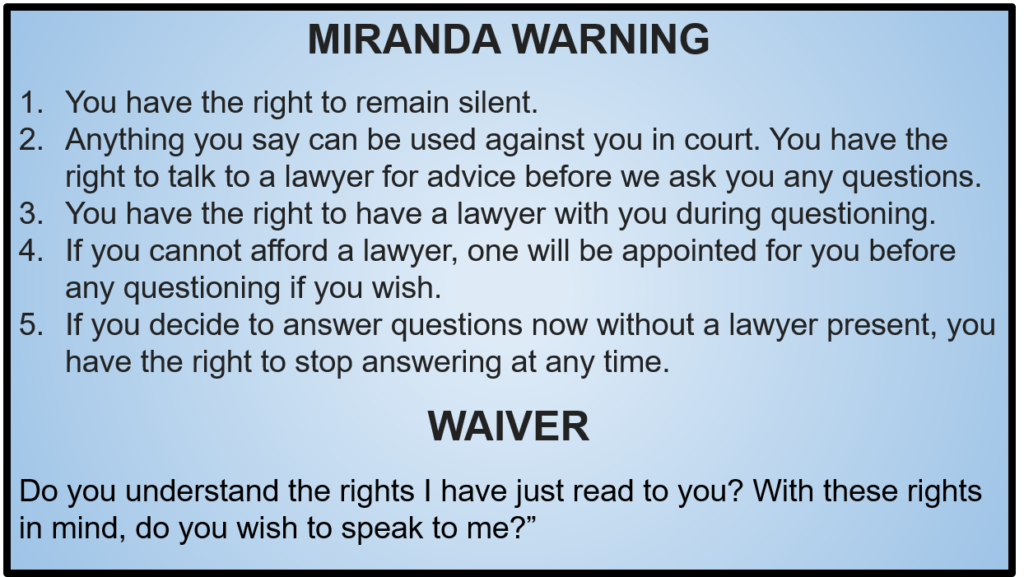What are known as Miranda rights come from a historic 1966 United States Supreme Court case called Miranda v. Arizona. The Supreme Court held that if the police want to question (interrogate) you in police custody, they must apprise you of your constitutional protections. These include protections against making self-incriminating statements and your right to legal counsel.
In Miranda v. Arizona, the Supreme Court established that police must inform anyone interrogated in police custody that they have the following constitutional rights:
– Fifth Amendment right against self-incrimination
– Sixth Amendment right to an attorney
Law enforcement must provide this warning before questioning begins. Today, we know it as the “Miranda warning” or as someone being “read their rights.”
Ernesto Miranda was arrested in Phoenix for kidnapping and rape. He voluntarily participated in a line-up where the victim identified him as her attacker. Police interrogated him for two hours before Miranda made a written confession to the crime. The form provided by the police included a typed paragraph stating that the confession was made voluntarily and with “full knowledge of my legal rights.” Otherwise, police provided no other warnings about Miranda’s right to an attorney or right to remain silent.
The Supreme Court ruled 5-4 that if these warnings are not given, statements made in custodial interrogation are generally not admissible in court.
Chief Justice Earl Warren wrote for the majority. They recognized that being in police custody puts a person in a vulnerable position. Therefore, it is important they be informed of their rights.
The Fifth Amendment, a segment of the U.S. Constitution’s Bill of Rights, was ratified in 1791. The Bill of Rights includes ten amendments added to the Constitution, focused on assuring individual freedoms and safeguarding against governmental intrusion.
The Fifth Amendment stemmed from the American colonists’ tribulations under British rule, characterized by inequitable legal practices and encroachments on their personal liberties.
The Fifth Amendment was designed to safeguard individuals’ rights in the legal system, particularly in criminal proceedings. Its origins can be traced back to English common law traditions. Common law values protecting people from coerced confessions and unfair trials.

The wording used when a person is read the Miranda Warning, also known as being ‘Mirandized,’ is clear and direct:
“You have the right to remain silent. Anything you say can and will be used against you in a court of law. You have the right to an attorney. If you cannot afford an attorney, one will be provided for you. Do you understand the rights I have just read to you? With these rights in mind, do you wish to speak to me?”